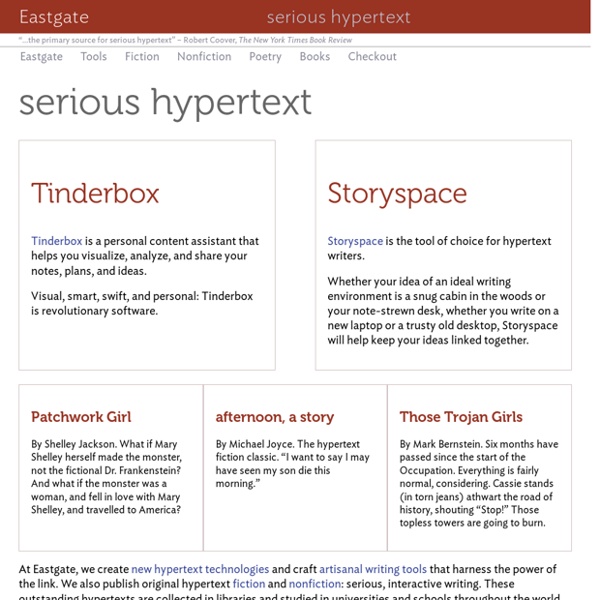



Faraway Hill Faraway Hill was the first soap opera broadcast on an American television network, airing on the DuMont Television Network[1] on Wednesday nights at 9:00 PM[2] between October 2 and December 18, 1946. Synopsis[edit] A widowed New York City resident, Karen St. John (played by Flora Campbell), moved to a small town to be near relatives. There she met a man who had been adopted by her family, and with whom she fell in love. However, he was already engaged to another woman. Jim Von Schilling, in his book, The Magic Window: American Television, 1939-1953, wrote, "Soap operas were popular on radio during the 1930s and 1940s; Faraway Hill simply brought the genre to television, where real arms were embraced, real tears shed, and where a card reading 'Continued Next Week' was held before the camera at each episode's climax Broadcast history[edit] The series ran from October 2, 1946, to December 18, 1946. In popular culture[edit] Episode status[edit] See also[edit] References[edit] Bibliography[edit]
Duxbury Systems -- braille translation software Dynasty : la série disponible dès aujourd’hui sur Netflix - Toute l'actualité des médias Français Nous vous parlons hier de vieilles sitcoms qui font leur retour. Justement, il en a une qui est revenue hier : Dynasty. Vous pouvez la retrouver à partir de ce jour sur Netflix. Une Dynasty près de 30 ans après On avait annoncé son retour depuis plusieurs mois, maintenant elle est là. The CW a commencé hier la diffusion de Dynasty, le reboot de la série culte des années 1980. Quelques modifications La nouvelle version de Dynasty se veut un peu plus glamour avec encore plus de diversités et de rebondissements que dans la version originale des années 1980.
eBooks.com - Home Page OnlyWire: The Only BookMarklet You'll Ever Need! Thomas Marci | Plus belle la vie Wikia | FANDOM powered by Wikia La vie est une fête ! Tel est l'adage de Thomas Marci avant d'arriver au Mistral. Ce roi du dance-floor passe ses nuits à user les pistes et à séduire les garçons. Le jeune homme vit une vie de débandade à Ibiza lorsqu'il reçoit un suspect courrier lui indiquant que l'assassin de sa mère se trouve au Mistral. Le 1er mars 2005, il débarque au Mistral dans l'optique de découvrir celui qui lui a ôté la présence de sa mère. Il n'est encore qu'un bambin lorsque sa mère, Iris Lenoir, est assassinée... La sympathie et la gentillesse de Thomas le propulsent directement dans la tribu Marci, et en fait un des piliers de la famille. Le garçon très ouvert et sympathique fait l'unanimité au sein des Mistraliens. Avec cette plénitude acquise sur le plan familial et amical, Thomas Marci aspire également à combler son vide sentimental. Lors de la quinzième saison, Thomas trompera Gabriel Riva avec Eric Norman.
Fictionwise eBook Short Fiction Leader Soap opera Un soap opera (anglicisme, parfois abrégé en soap) ou roman-savon (au Québec) est un type de feuilleton radiophonique ou télévisé. Cette désignation provient du fait que les premiers feuilletons radiophoniques américains étaient produits et commandités par des fabricants de savon et autres produits d'hygiène et d'entretien comme Procter & Gamble, Colgate-Palmolive et Lever Brothers[1],[2]. Caractéristiques[modifier | modifier le code] Thématique et personnages[modifier | modifier le code] Dans de nombreux soap operas, en particulier les soaps diffusés en journée aux États-Unis, les personnages sont beaux, séduisants, glamour et riches. Narration[modifier | modifier le code] Selon le critique Albert Moran, le soap opera est « un programme télévisuel basé sur une narration perpétuellement ouverte. Un soap opera repose sur plusieurs intrigues parallèles. Les intrigues des soaps sont parfois complexes, voire confuses. Exemples de soap operas[modifier | modifier le code]
PROJECT GUTENBERG OFFICIAL HOME SITE - INDEX -- Free Books On-Line - Soft boy To not be confused with a fuckboy, though they are very similar. A softboy may or may not have a cocky attitude, but if he does, it's all a facade or front. He will claim to be into a girl for her personality and create the impression that he's really trying to get to know a girl below the surface. He'll lead a girl on by continuing to have sex with her knowing he's not interested in her or anything long-term, regardless of whether or not she has or is developing feelings for him. the Santa Fe Convention by the Open Archives initiative Officially released on February 15th 2000 Welcome to the Santa Fe Convention. This convention is the result of a meeting of the Open Archives Initiative which was held in Santa Fe, New Mexico, on October 21-22 1999. This convention has been endorsed unanimously by all the participants at the meeting, who represented organizations maintaining or planning e-print archives intended for open access and organizations interested in providing services, such as search interfaces or citation-linking, based on the data in those archives. The convention presents a simple technical and organizational framework to support basic interoperability among e-print archives. Objective Scholarly authors can make electronic documents available to a global audience by submitting them to e-print archives. The Santa Fe Convention presents a technical and organizational framework designed to facilitate the discovery of content stored in distributed e-print archives.
Romantic Feminism With its emphasis on feeling and reflection, the Romantic Period is often seen as a reaction to the Age of Enlightenment's desire to acquire knowledge. This shift in values allowed men to engage with each other more democratically, since feeling is more about personal response than rational control. The Romantic atmosphere, vibrating with ideas about individual liberty, seemed ideal for recognizing women as deserving equals. Before bringing these challenges to the legal front, these early feminists sought to redefine common understandings about women and to change social standards first. Regardless of which particular issue was being addressed, women in the Romantic period claimed that improper education was the source of the problem. Without a proper education, Romantic feminists argued, feminine sensibility was artificially constituted. Kat Powell